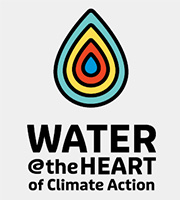Most people will first experience climate change through water – whether it be too much, too little, or poor quality.
Climate-related disasters affect billions every year, destroy infrastructure, weaken systems and impact service provision.
The IPCC identifies providing water services as one of the most effective measures to reduce climate vulnerability and a “low regrets” adaptation measure. Combined WASH interventions have excellent value for money: a US $4.30 return for every dollar spent (WHO, 2012).
Brochure_Water and Climate_Global_ 2025 by Wash Geneva
 This flagship multi-year, multi-partner programme aims to accelerate and scale up water action to mitigate the impacts of water related risks and increase climate resilience of affected communities.
This flagship multi-year, multi-partner programme aims to accelerate and scale up water action to mitigate the impacts of water related risks and increase climate resilience of affected communities.
WASH is a core part of IFRC’s work and is well framed as part of IFRC’s Global Climate Resilience Program. Together with National Socities, we work to build climate-resilient water, sanitation, and hygiene services that help communities prepare for and recover from climate disasters.
National Societies lead local projects that combine traditional knowledge with modern approaches, working across sectors like healthcare and education. They focus on early warning systems, sustainable infrastructure, and building community capacity to manage water and sanitation challenges in a changing climate.
IFRC is aligned with Sanitation and Water for All (SWA)’s definition of climate-resilient WASH services which was published in November 2024.
Climate-resilient WASH services anticipate, respond to, cope with, recover from, adapt to or transform based on climate-related events, trends and disturbances, all while striving to achieve and maintain universal and equitable access to safely managed services, even in the face of an unstable and uncertain climate, where possible and appropriate, minimising emissions, and paying special attention to the most exposed vulnerable groups.
IFRC has identified seven steps to support evidence-based action to reduce the health impacts of climate change.
This diagram represents a systems-based approach to reducing the health impacts of climate change, emphasizing interconnected actions that must be taken across sectors, levels, and timelines. At its heart is the recognition that climate change is a health crisis, and addressing it requires more than emergency response. We call for long-term, proactive, and coordinated strategies.
We put this approach into practice by working closely with National Societies, governments, and communities to strengthen climate resilience and health systems before disasters strike.
Sign up to receive updates from the IFRC WASH unit here, or contact us for more information